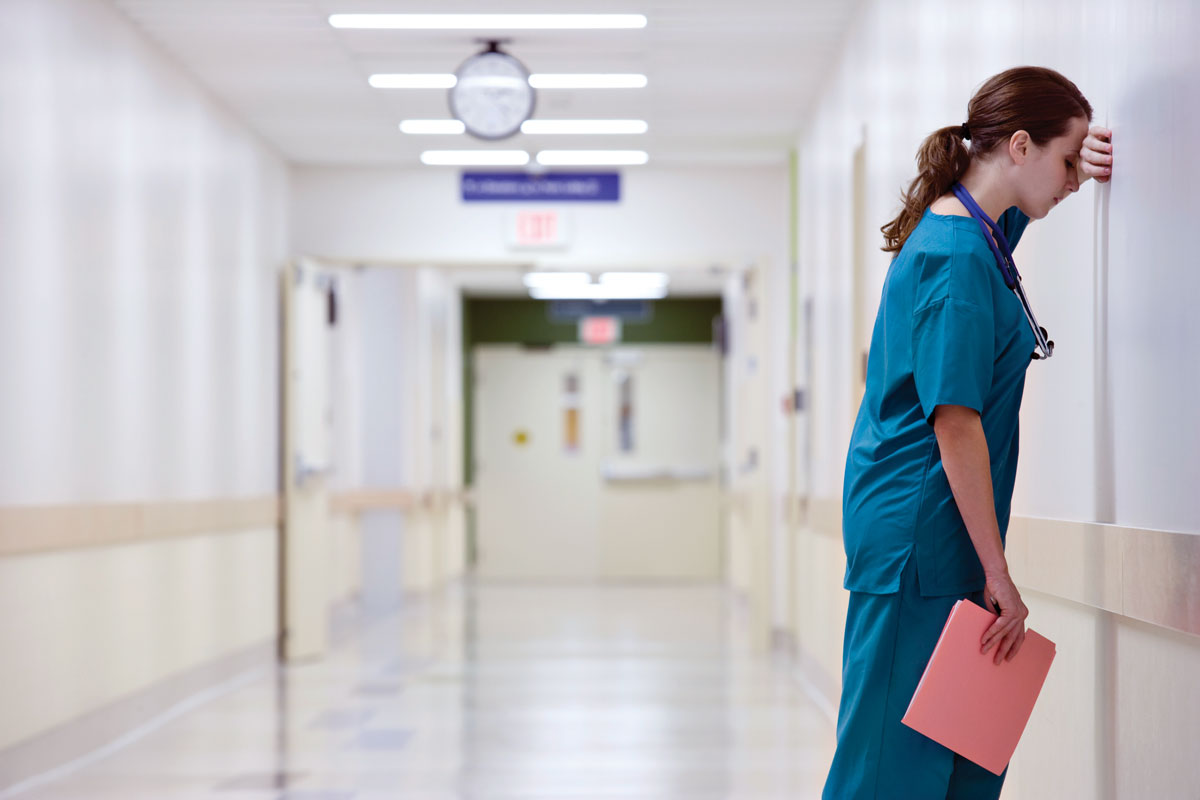 ED: As we all have a break from the intensity of pandemic disaster response, doctor health and wellbeing has never been more important.
ED: As we all have a break from the intensity of pandemic disaster response, doctor health and wellbeing has never been more important.
We need to acknowledge as a profession the psychological impact this momentous time has had on us as frontline workers, and not simply dismiss it and return to ‘business as usual’.
The COVID-19 outbreak remains a once in a 100-year phenomenon, the likes for which doctors and the community were unprepared. We have been living and working in pandemic conditions for some time now, and mostly have assimilated and accepted the necessary actions which have seen successful containment of the disease in Australia (so far).

The psychological impact on health care workers has been profound. Initially, feelings of fear, anxiety and panic, a ‘pre-traumatic’ stress, were experienced as we watched the uncontrolled viral spread ravage other countries.
High levels of stress for doctors were created by a range of factors including lack of PPE, financial worries, profound changes to our work practice, and loss of social contact.
Fortunately, the flood of cases we were anticipating did not eventuate. Now, with limited levels of community transmission and relaxation of restrictions, we are taking a breath and looking to the recovery and reconstruction phase of a pandemic.
But what psychological implications can we expect in this next phase?
Eventual recovery is likely to be prolonged, especially given real disease control with vaccination is realistically many months if not years away. We are simultaneously needing to look beyond COVID, while being primed to move back into disaster management at a moment’s notice.
At the least we are now more logistically, materially and psychologically prepared with a better equipped and primed health system to deal with any future waves of disease.
We need to acknowledge as a profession the psychological impact this momentous time has had on us as frontline workers, and not simply dismiss it and return to ‘business as usual’. The psychological impact includes burnout, anxiety, depression and post-traumatic stress. These issues may develop long past the acute period as people are finally able to reflect on their experiences.
Talking about our experiences, for some but not all, can be useful to deal with emotion, possible feelings of shame and guilt and moral injury experienced.
What can we do to be psychologically ready for this period? This is very much a marathon – we, ourselves, need to prepare for the long-term by enacting realistic and sustainable strategies for maximising our resilience and burnout prevention.
We also need to support our family, friends and staff members who will also be psychologically vulnerable (even if they appear fine on the surface). At work we need to return to managing our patients’ chronic conditions.
It is important that we stay abreast with reliable, timely information and avoid the toxic influence of social media. Our mindset is important. We are seen as community leaders; our outlook should encourage measured and informed action and instil hope in our patients.
Staying mindful in the present is important; as is focusing our efforts in areas over which we can exert control – dealing with the now is the priority to get to the next stage. It is also useful to approach these times with a growth mindset; by reflecting on what has happened and enacting positive changes that will help in the future.
There are silver linings. Many of us will have learnt more about ourselves and our work colleagues, and come closer together as a team. Some work practice changes will have long-term benefits such as telemedicine on a grand scale, which will hopefully advance the way we deliver and service our patients.
The future of COVID remains unknown, and we will only know the outcomes as they unfold. This can leave a feeling of powerlessness, but if we focus on what we can do, manage the situations as they arise, look after ourselves and our colleagues, seek help when needed and have hope for the future, then we are better placed to face new challenges.
If you are experiencing any issues please contact:
- Doctors Health Advisory Service 24/7 Advisory Line: 9321 3098
- Lifeline: 13 11 14
See www.dhaswa.com.au for the latest COVID-19 wellbeing resources.

